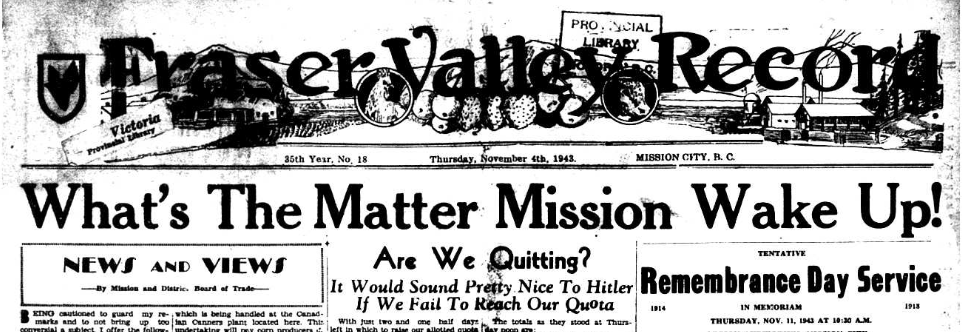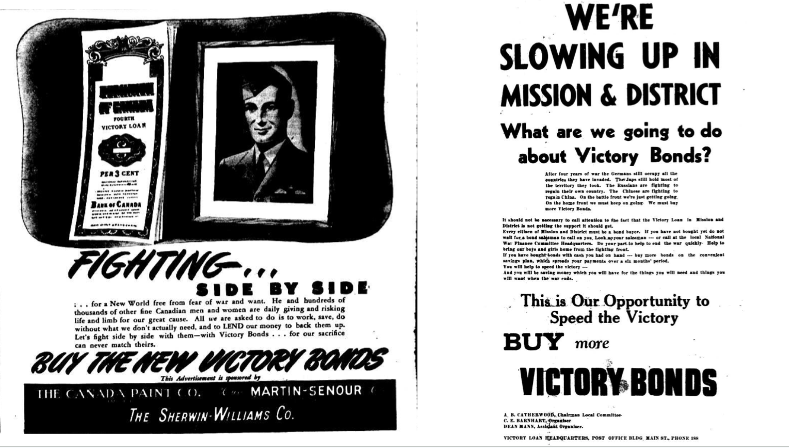
For people who were not battling on the frontlines, there was only so much one could do to support the war effort. The realities of the war began to sink in when there was news of people who were known in the community having been killed in action. Author Sylvia Crooks demonstrates this in her book when she discusses the emotions that overcame her when she learned that a former neighbour had lost his life serving in Germany. Similar to Grinsted, Crooks took an interest in other locals who were serving in the war and began researching their roles as well as the effect the war had on her hometown of Nelson, British Columbia. This research eventually turned into a book titled, “Homefront and Battlefront: Nelson BC in World War II”.
Many people wanted to help support the war effort. In the local newspapers, there were numerous clippings of propaganda promoting the sales of war bonds and encouraging young people to enlist. In one advertisement promoting enlistment, it stated, “Now that I can go I’m not going to stick around and let the other fellows do it”. This advertisement was targeted at young individuals encouraging them to serve for their country. Purchasing war bonds was another way that citizens got involved and they were very highly encouraged. Individuals in the community were also volunteering in their own time to support those overseas. Grinsted’s wife, Mabel, was an active member of the war on the homefront and served as a Civilian Recruiting Advisor. Below there are some examples of advertisements that were posted in the newspaper.

While many articles in the newspaper were acknowledging the broader occurrences of the war there was rarely any information regarding the soldiers who were on the frontlines, more specifically soldiers from their community of Mission. This is why “Pop’s Column” became such a unique phenomenon. The war was often presented through rose-coloured lenses and was glamorized to be patriotic. However, Grinsted’s column was able to build a sense of community that rallied around its civilians. Grinsted always provided information regardless if it was good or bad. For instance, in one of his columns, he wrote about “PO Bob Vosburgh RCAF. A swell fellow and a well known alround sport. Used to play basketball. Well, Bob is now Instructor of Navigation in Quebec and doing a fine job”. Grinsted’s relaxed and conversation-like writing style set him apart from other pieces written in the newspaper and is likely why the column became so popular.